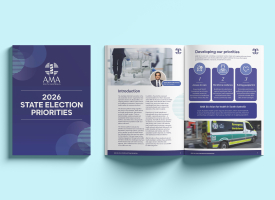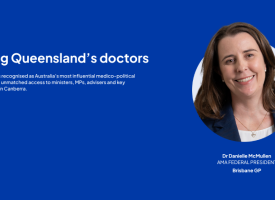Doctors can play important role for conversion practice survivors
LGBTQIA+ patients who are survivors of conversion practices need support from GPs and health practitioners.

LGBTQIA+ patients who are survivors of conversion practices need support from GPs and health practitioners.
The AMA’s journal—the Medical Journal of Australia (MJA)—this week examines the role doctors and other health practitioners can play in helping lesbian, gay, bisexual, transgender, queer, asexual or gender and sexually diverse (LGBTQIA+) survivors of conversion practices.
In the MJA’s podcast this week MJA news and online editor Cate Swannell speaks with Associate Professor Jennifer Power and Associate Professor Timothy Jones from the Australian Centre in Sex, Health and Society at La Trobe University about the ways health professionals might help LGBTQIA+ patients who are survivors to recover.
In a corresponding Insight+ article A/Profs Power and Jones discuss the harms that conversion practices often have on patients, with “studies over the past 20 years have shown a wide variety of mental health problems associated with conversion practices, including very, very high rates of suicidality.”
Power and Jones say that doctors are often unaware of how they might be able to best help survivors of conversion practices, and that “there’s a great need for health practitioners in Australia to get better at supporting sexually diverse people, gender diverse people and people from minority religious and cultural traditions.”
Another Insight+ article this week follows the announcement of the National Obesity Strategy and calls for a number of reforms including a “health levy on manufacturers of sugary drinks, now implemented by more than 50 countries, [which] has resulted in reductions in sugar consumption and reformulation of products,” which the AMA has been calling for since the launch of the report in 2021. The AMA also launched the #SicklySweet social media campaign to help educate Australians on the dangers of sugary drinks and to gain support for a tax on sugary soft drinks.



